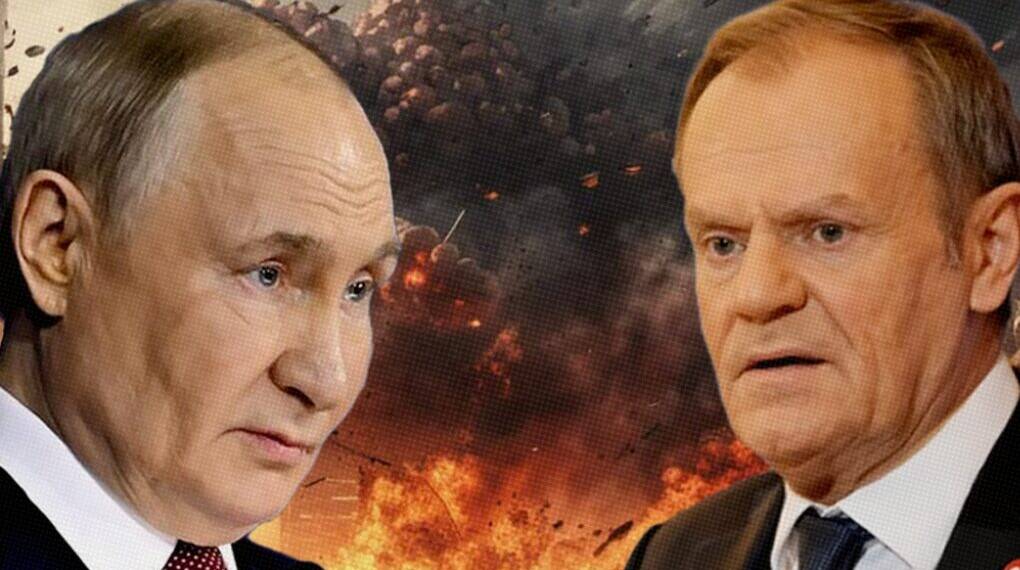Poland has issued a sober and urgent message as Prime Minister Donald Tusk declared the nation is entering “pre-war times,” underscoring the intensifying geopolitical tensions faced by this key NATO member. This declaration came amid a narrow electoral victory and a fresh government unveil, where Tusk highlighted growing external threats, primarily emanating from Russia and Belarus, and warned of internal vulnerabilities linked to political actors sympathetic to Moscow. The government’s recent call for Polish citizens to leave Russia immediately signals an escalation in regional tensions with profound implications for Poland, NATO, and European security.
Poland’s “Pre-War” Declaration
Poland’s geographic and historical position has made it a frontline state in the post-Cold War security architecture of Europe. Its long border with Russia’s ally Belarus and historical experiences of Soviet dominance have shaped Polish foreign policy with a strong emphasis on deterrence, alliance cohesion, and resilience against Kremlin assertiveness. The phrase “pre-war times,” rarely used in European political discourse since World War II, conveys a sense of acute threat perception and suggests that Polish leadership views current developments as dangerously destabilizing. Polish Prime Minister Donald Tusk has stated, “War is no longer a thing of the past. It is real, and in fact, started over two years ago,” urging Ukraine’s protection and mental preparation for this new era.
Tusk’s warning explicitly accuses Russia and Belarus of engaging in deliberate destabilization efforts. These efforts likely include hybrid warfare strategies such as disinformation campaigns, economic pressure, sabotage attempts, cyberattacks, and support for domestic actors aligned with Russian interests. His government has identified Belarus under Alexander Lukashenko as facilitating Russian military activities, including troop deployments and the weaponization of migration flows aimed at destabilizing Poland and other neighboring NATO states.
Furthermore, Tusk raised alarm over internal vulnerabilities within Poland’s political fabric, pointing to certain domestic political figures and groups sympathetic to Moscow. Such political divisions risk undermining national unity at a time when cohesiveness is critical for survival in these “pre-war” conditions. This internal threat complicates Poland’s security posture, as foreign adversaries may exploit those sympathies for divide-and-conquer tactics.
Poland’s Request for Citizens to Leave Russia: A Forewarning?
Poland’s unprecedented directive urging its citizens to leave Russia immediately is a striking diplomatic move generally reserved for periods of grave international crisis or imminent conflict. It reflects fears that the bilateral relations and regional environment could quickly deteriorate to hostile or dangerous levels for Polish nationals living or traveling in Russia.
This evacuation advisory suggests Poland anticipates a range of possible escalatory scenarios: intensified diplomatic crises, restrictive measures against Polish nationals in Russia, or even military confrontations. This announcement also aligns with broader NATO concerns about ongoing Russian military posturing near NATO borders, including the buildup associated with joint Russia-Belarus exercises like Zapad 2025.
Implications for NATO and Regional Security
Poland’s “pre-war” characterization elevates concerns about NATO’s eastern flank security and alliance readiness. As one of NATO’s most vocally proactive members in deterring Russian aggression, Poland’s warning is a call for heightened vigilance, reinforcement of deterrence mechanisms, and stronger political unity across the alliance.
The Polish leadership’s message challenges NATO members to confront the stark reality that the Russian threat remains potent and potentially expanding beyond conflict zones in Ukraine. Poland has actively advocated for enhanced NATO troop presence, upgraded military capabilities, and coordinated responses specifically tailored to counter hybrid warfare tactics aimed at destabilization rather than conventional warfare alone.
At the same time, this declaration exposes vulnerabilities within Poland’s internal political landscape. A nation on a “pre-war” footing requires strong domestic cohesion; fissures risk weakening Poland’s position against hostile external actors. Tusk’s government has also embarked on significant defense reforms, aiming to expand the Polish military and train every adult male with military skills by the end of 2025 as part of this war preparedness strategy.
Balancing Deterrence and Diplomacy
Poland and NATO face the delicate task of calibrating deterrence without provoking unintended escalation. While Poland’s rhetoric signals resolve and preparedness, it carries the risk of fostering heightened alarmism or accelerating tensions. Maintaining open diplomatic channels, robust intelligence sharing, and coordination with EU partners remain indispensable.
Concurrently, Poland’s message underscores the urgent need to heal internal political divisions, resist disinformation, and bolster democratic resilience to counter foreign interference. Political unity and information integrity are critical components in withstanding the hybrid warfare methods employed by Russia and Belarus.
A Stark Warning with Broad Ramifications
Prime Minister Donald Tusk’s declaration that Poland is entering “pre-war times” and the call for Polish nationals to exit Russia underscore an alarming intensification of regional security threats. The Polish government perceives Kremlin actions not only as a threat to Ukraine but as a direct challenge to NATO’s eastern flank and Poland’s own political stability.
This moment is pivotal for NATO’s commitments to deterrence and collective defense while managing the risks inherent in escalating security environments. Poland’s stance is both a warning and a rallying call—to its citizens and to the broader Western security community—to prepare for an increasingly volatile and uncertain era in Europe’s geopolitical landscape.
In 2025, Poland’s leadership role in European and NATO security continues to grow. The country has initiated efforts to seal borders against hybrid threats, especially through migration weaponization, and boosts military readiness with plans to expand its forces substantially. Poland has also intensified cooperation with allies, signing security treaties such as with France, and pushing for enhanced NATO presence in the Baltic and Eastern European regions.
Through all these measures, Poland aims to reinforce deterrence, safeguard sovereignty, and help secure the broader European order against an assertive Russia-Belarus axis employing a mix of conventional, hybrid, and political warfare tactics.








